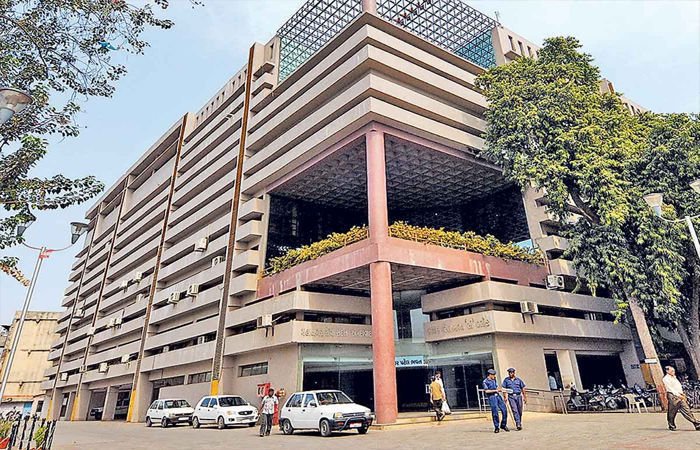AMC Targets Tax Defaulters and Waste Violators in Ahmedabad
In a strong move to ensure civic compliance and enforce cleanliness, the Ahmedabad Municipal Corporation (AMC) has carried out simultaneous operations targeting property tax defaulters and littering violators. These actions, spanning multiple zones of the city, underline the AMC’s ongoing commitment to improving urban governance, enhancing civic responsibility, and promoting a cleaner, more organised environment.
A particularly noteworthy initiative took place in Ahmedabad’s eastern zone, where the AMC sealed 825 properties belonging to tax defaulters. These properties, spread across notable complexes such as the Rakhial Arhat Industrial Estate, Sumel Business Park, and Nikol Akshar Arcade, had failed to clear outstanding property taxes. This crackdown forms part of the corporation’s broader strategy to enforce property tax compliance. The sealing of these properties is a key mechanism used by AMC to apply pressure on defaulters to clear their dues. It is also a strong message to other property owners that non-payment of taxes will not be tolerated. On the same day, the AMC collected INR 47.72 lakh in overdue property taxes, demonstrating the immediate impact of their decisive actions.
In a parallel move, the solid waste management department also intensified its operations to curb public littering. During the week, inspections were conducted across several areas in Ahmedabad’s south zone, where a total of 432 units were scrutinised for violations of cleanliness and waste disposal norms. Of these, 150 units received notices for public littering, and 17 of them had their operations sealed. In total, the AMC collected INR 1.14 lakh in fines from offenders. The crackdown also extended to Ahmedabad’s north zone, where 249 units were issued notices, and INR 75,000 in fines were levied for littering violations. The AMC’s resolute actions in these areas are indicative of its zero-tolerance approach towards public cleanliness violations and the growing emphasis on urban environmental responsibility.
These enforcement actions by the AMC highlight the city’s increasing focus on both financial and environmental compliance. The property tax crackdown is crucial for addressing the longstanding issue of revenue collection, which directly impacts the corporation’s ability to fund essential services and infrastructure projects. Meanwhile, the solid waste management department’s efforts target the ever-growing issue of waste mismanagement in urban areas, which is a critical aspect of sustainability. Ahmedabad, like many rapidly urbanising cities in India, faces significant challenges in managing waste effectively and keeping its streets clean. These initiatives aim not only to reduce financial discrepancies but also to tackle public health issues and environmental degradation caused by littering and improper waste disposal.
From a sustainability perspective, the AMC’s dual focus on property tax compliance and public cleanliness plays a pivotal role in creating a more liveable and sustainable city. By incentivising proper waste management and penalising littering, the civic body is actively contributing to a healthier urban environment, reducing the city’s carbon footprint, and mitigating the environmental costs associated with poor waste practices. Furthermore, by stabilising property tax rates and ensuring compliance, the AMC can potentially allocate more funds towards urban development projects that prioritise sustainability. This integrated approach is essential for building a well-regulated, efficient, and eco-friendly urban ecosystem that can sustain Ahmedabad’s rapid growth.
The ongoing enforcement by AMC is also a reflection of the city’s shifting priorities towards better urban governance. As Ahmedabad continues to grow, both in population and infrastructure, authorities are becoming increasingly vigilant in enforcing rules that preserve the city’s cleanliness and financial health. If these actions prove successful, they could set a precedent for other cities grappling with similar issues of tax defaulters and waste management. With more inspections and penalties likely to follow, Ahmedabad’s efforts could be the blueprint for urban reforms that balance financial accountability with environmental sustainability.


